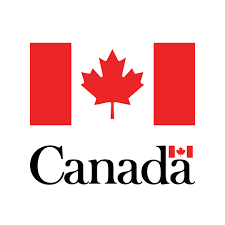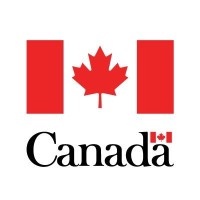
Open
Alliance grants
Last Update: December 12, 2025
Canada
Partnering support for R&D projects
Partnering and Collaboration
At a glance
Funding available
Financing goals
Develop a new product
Integrate new technologies
Research and experimental development
See more
Eligible Funding
- Maximum amount : 1,000,000 $
- Minimum amount : 20,000 $
Timeline
- Unspecified
Eligible candidates
Eligible Industries
- Professional, scientific and technical services
Location
- Canada
Legal structures
- Non-profit
- Public or Parapublic institution
- For-profit business
- Social economy enterprise
Annual revenue
- All revenue ranges
Organisation size
- All organization sizes
Audience
- Indigenous Peoples
- Persons with Disabilities
- Other Racialized Persons
- 2SLGBTQI+
- Canadians
- Women
Non-profit candidates
Sector of operation
- Higher Education
- Research
- Economic, Social and Community Development
- Diversity and Inclusion
Target groups
- General public
- Indigenous peoples
- People with disabilities
- Women & girls
- LGBTQ+ community
- Academia / students
- Minority groups
Revenue structures
- All structures
Scope
- Local
- Municipal
- Regional
- Provincial
- National
- International
Overview
Need R&D help for a business problem? Get support when you partner with a university researcher and make an in-kind contribution to a project that benefits Canada.
Activities funded
- Collaborative research projects between a university and partner organizations aimed at generating new knowledge or technologies to address complex challenges.
- Applied research initiatives intended to create economic, environmental, or social impacts for Canada and partner organizations.
- Projects contributing to Canada’s long-term competitiveness, notably through technological innovation or the improvement of existing processes.
- Research work supporting the development or improvement of public policies based on evidence.
- Projects integrating the training and mentoring of new researchers in areas deemed strategic for Canada.
Examples of admissible projects:
$ 500,000
Creating innovative public policy solutions to enhance urban planning and development
$ 250,000
Developing eco-friendly packaging solutions to reduce plastic waste in the retail industry
$ 450,000
Investigating renewable energy sources to power remote communities in Canada
$ 700,000
Training new researchers in cutting-edge quantum computing technologies to advance Canada's tech sector
$ 400,000
Researching advanced AI technology to improve cybersecurity measures for financial institutions
$ 600,000
Developing biotechnological methods to improve crop yields and sustainability in agriculture
Eligibility
Eligibility for this grant is determined by specific requirements related to the university researchers and their collaboration with partner organizations.
- Applicants must be Canadian university researchers eligible to receive NSERC funds.
- Applicants can apply individually or as a team with other eligible academic researchers.
- There must be at least one partner organization from the private, public, or not-for-profit sector, which can be recognized for cost sharing.
- Additional partner organizations can be included regardless of whether their cash contributions are recognized for cost sharing.
- The project must involve collaboration with partner organizations and focus on generating new knowledge or technology to address complex challenges.
Who is eligible?
If you are a Canadian university researcher eligible to receive NSERC funds, you can apply on your own or as part of a team with other eligible academic researchers. You are required to have at least one partner organization from the private, public, or not-for-profit sector that is recognized for cost sharing in your research project, although additional partner organizations, whether or not they provide cash contributions, can also be included in your project. College faculty can participate as co-applicants. This grant supports projects of varying scales and complexities, enabling collaborations that range from single researcher-led projects to long-term, multi-university research initiatives.Eligible expenses
This grant supports projects aimed at establishing fruitful collaborations between academic researchers and partners in the public, private, or non-profit sectors. Here is a list of potentially eligible activities according to the objectives of this grant:
- Production of new knowledge or technologies to solve complex challenges.
- Generation of economic, environmental, or societal benefits.
- Contributions to Canada’s long-term competitiveness.
- Support for the development of public policies.
- Training of new researchers in key areas for Canada.
- Utilization of diverse perspectives to accelerate the application of research results.
Selection criteria
- Consideration of the principles of equity, diversity, and inclusion in the composition of the research team and in the training, mentoring, and development activities of students and other interns.
- Measures put in place to eliminate barriers to the full participation of individuals from underrepresented groups (women, Indigenous peoples, persons with disabilities, visible minorities or racialized groups, 2SLGBTQI+ community).
- Capacity of the research partnership to incorporate different perspectives and skills in order to accelerate the application of results and generate impacts for Canada.
- Due diligence approach regarding national security for projects involving private sector partners, including the assessment and mitigation of risks related to the research partnership.
How to apply
1
Initial Preparation
- Review the Alliance Advantage grant eligibility criteria to ensure you qualify as a university researcher collaborating with eligible partner organizations.
- Identify and confirm at least one partner organization for cost-sharing and research collaboration purposes.
2
Complete a Risk Assessment
- For partnerships involving private sector organizations, complete the required risk assessment form as part of your application.
- Refer to the National Security Guidelines for Research Partnerships for completing the risk assessment form.
3
Draft the Application
- Define the research project goals and objectives, ensuring alignment with Alliance grant priorities.
- Outline the project’s societal, economic, or environmental benefits to Canada.
- Develop a comprehensive training plan that includes equity, diversity, and inclusion (EDI) strategies as outlined by NSERC guidelines.
4
Gather Supporting Documents
Compile the necessary documents such as budgets, timelines, and letters of support from partner organizations.
5
Online Submission
- Access the NSERC’s online portal for grant applications.
- Upload all required documents and complete the online application form.
- Ensure all information is accurate and complete before final submission.
6
Confirm Submission
- Submit the application through the portal once ready.
- Receive confirmation of application submission, which may include a tracking or reference number.
Additional information
- This funding opportunity is subject to the Policy on Research in Sensitive Technologies and Concerning Concerns (RTSAP) published on January 16, 2024.
- Applications involving research areas in sensitive technologies will not be funded if a team member is affiliated with certain named research organizations or receives funding or in-kind contributions from them.
- For partnerships including at least one private sector organization, a national security risk assessment form must be completed by the institution and attached to the application.
- There is no deadline for submitting an application, and the page was last updated on April 17, 2024.
Contacts
alliance@nserc-crsng.gc.ca
1-855-275-2861
Canada
Apply to this program
Frequently Asked Questions about the Alliance grants Program
Here are answers to the most common questions about the Alliance grants. This section explains what the program is, how much funding is available, eligibility requirements, application deadlines, and other important details to help you determine if this grant is right for your business.
What is the Alliance grants?
How much funding can be received?
Who is eligible for the Alliance grants program?
What expenses are eligible under Alliance grants?
Who can I contact for more information about the Alliance grants?
Where is the Alliance grants available?
Is the Alliance grants a grant, loan, or tax credit?
Apply to this program
More programs like this

Grant and FundingClosed
Industrial Research Assistance Program (IRAP) – AI Assist
National Research Council Canada (NRC)Supports Canadian SMEs in adopting and integrating advanced AI solutions

Partnering and CollaborationGrant and FundingOpen
Strategic Innovation Fund (SIF)
Innovation, Science and Economic Development Canada (ISED)Strategic Innovation Fund supports transformative Canadian economic investments

Wage Subsidies And InternsOpen
Industrial Research Assistance Program (IRAP) — Youth Employment Program (YEP)
National Research Council Canada (NRC)Money to hire a student

Researchers And FacilitiesPartnering and CollaborationWage Subsidies And InternsOpen
Mitacs Accelerate
MitacsConnect organizations with academia for research and innovation collaboration

Grant and FundingOpen
NRC IRAP – Support for clean technology
National Research Council Canada (NRC)Funding for Canadian SMEs advancing innovative clean technology commercialization

Grant and FundingClosed
ISED — Artificial intelligence (AI)
Innovation, Science and Economic Development Canada (ISED)Supports testing innovative AI prototypes for Canadian government needs

Grant and FundingOpen
Global Innovation Clusters
Innovation CanadaFinancial assistance to work in collaboration on innovation projects

Grant and FundingOpen
IP for Business
Canadian Intellectual Property Office (CIPO)Intellectual property training, tools and expertise

Wage Subsidies And InternsOpen
ECO Canada — Student Work Placement Program
ECO CanadaMoney to hire students for an environmental co-op

Grant and FundingClosed
Enhanced Road Safety Transfer Payment Program (ERSTPP)
Transport Canada (TC)Funds projects to enhance road safety and reduce traffic injuries
Sign up to our platform to access the Alliance grants information sheet for free
Get access to 4,000+ programs, practical guides, personalized alerts, and an AI assistant to support your grant applications.